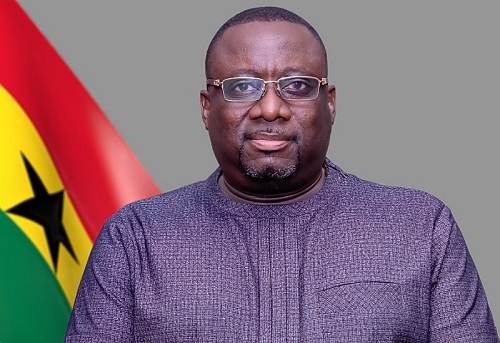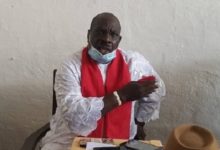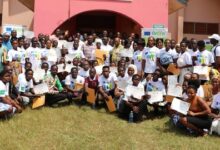
The Regional Director of WaterAid West Africa, Dr Abdul Nashiru Mohammed, has emphasised the need for quality data collection to help accelerate Ghana’s drive toward achieving the Sustainable Development Goals, especially SDGs 6.
According to him, having access to quality data would also assist in minimising duplication of efforts and fragmented interventions that did not correspond to national standard.
Dr Mohammed stated this on the sideline of the 33rd Mole conference held at Elmina in the Central Region on the theme: “Ghana’s Commitment to Water Sanitation and Hygiene (WASH) Connecting Systems to Bridge Service Gaps.”
He observed that both the government and civil society organisations were unable to collect quality data, which he said was impeding the country’s efforts to achieve SDG 6.
Dr Mohammed also emphasised the importance of the government investing in monitoring and evaluation, saying “it makes possible to monitor progress in relation to sector targets and determine when correction is required.”
However, he pointed out that the country had made significant advances in providing water services, in contrast to the sanitation sectors, which were currently facing extremely urgent problems.
The regional director added that it was important for stakeholders in the WASH sector to continue to work together “in the spirit of transparency, cohesion, synergy and accountability” to ensure that Ghanaian households had access to improved household and public toilets, as well as potable drinking water.
Mr George Asiedu, the Greater Accra Metropolitan Area Sanitation and Water Project, sharing thoughts with the media on the topic: “Unresolved challenges with promoting household toilets in low income” stressed on the need for an integrated master plan to tackle issues of drainage, solid waste and sanitation.
For him, sanitation issues were related, hence the need for collaboration to resolve them.
“We realise that the problems are related, we have drainage problem causing flooding in the country and we have poor solid waste management, poor sanitation issues, with challenges to access to toilet and management of faecal matter,” he said.
“So, all these combined is a bigger challenge and whilst you focus on dealing with solid waste management, you realise either your drains are chocked or you have the drains, yet they do not function because they have been used as receptacles for solid waste,” Mr Asiedu stated.
He noted that the high incidence of sanitation related sicknesses was because people had connected their septic tanks into drains.
The GAMA SWP is World Bank grant of 150 million US dollars to support the government’s effort to increase access to improved sanitation and water supply, with emphasis on low-income communities in the Area and to strengthen the management of the environment.
BY BENEDICTA GYIMAAH FOLLEY







